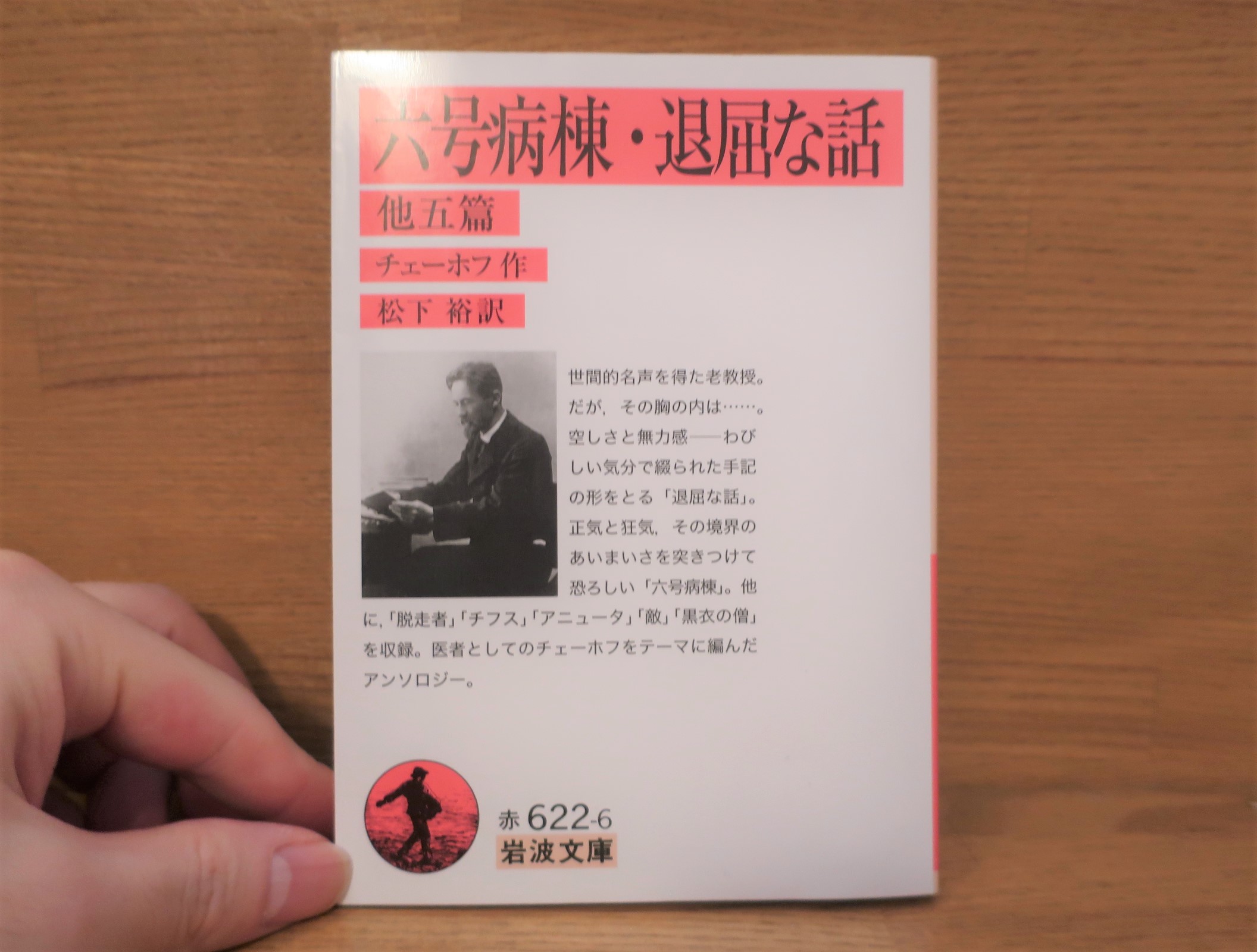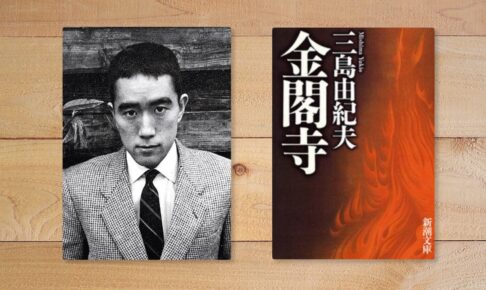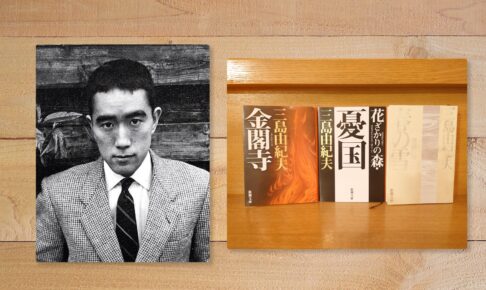Synopsis of Chekhov's "A Boring Story" - A masterful short story that Thomas Mann and Tolstoy also praised.
The Boring Story is a short story published by Chekhov in 1889.
I read "Boring Stories" in Iwanami Bunko, translated by Yutaka Matsushita in "Ward No. 6, Boring Stories.
The protagonist of this work is an elderly professor named Nikolai Stepanovich, and the story takes the form of a memoir by this professor.
Chekhov scholar Seiro Sato explains the story as follows.
Boring Stories" is a work that holds one of the keys to the search for the motives that drove Chekhov to Sakhalin. The entire work is filled with the passionate question, "For what purpose do people live? It even has the appearance of a pioneering work of later existentialism.
As he often said during this period, literature should not aim to "solve problems," but to "raise problems," and this work presents this very "problem statement" in one extreme state.
Chikuma Shobo, Seiro SatoThe World of Chekhov's Art.P145
In 1890, the year after Chekhov wrote this work, he went on a research trip to Sakhalin Island. This trip would have a major impact on his later life as a writer.
It is said that one of the keys to solving the mystery of why he went out of his way to travel, even at the risk of his life, is this "boring story.
The main character, Professor Nikolai Stepanovich, is 65 years old this year (the prototype is said to be Professor Ai Babukhin of Moscow University), and due to illness, he knows that he has only half a year to live.
Although he had achieved great success in the eyes of the world, one day he suddenly realized that his entire life had been a complete void.
He says it's because they don't have a "living human God" (worldview). They say it is because they have realized that they do not have a "universal philosophy. They realized this "one day, out of the blue.
Chikuma Shobo, Seiro Sato, The World of Chekhov's Art, p. 145-146
Nikolai Stepanovich has studied hard to succeed as a scholar and actually became a nationally and internationally known professor. He entered his later years as a worldly success.
However, as he nears death, his worldly fame and success seem completely empty. He begins to wonder what he has done all this time, and whether he will just die in the void.
Suddenly, everything in the world is seen through different eyes. This sudden awakening does not happen to anyone else in the family, but only to this imperial professor. Why does it happen only to him?
'I don't know. Maybe all the unhappiness is because God has not given my wife and daughter the same power as I have," he interprets.
Only he is given the "power" of awakening, which is not given to his wife and children, and it all begins when he "one day, suddenly" awakens.
Your eyes are open. That's all. You're seeing things you didn't want to see before for some reason," said Katya, my friend's daughter. Perhaps she is right. We all have things we "don't want to notice. (omitted).
In terms of the composition of the work, the familiar techniques of the Chehontae era are used. In other words, at the beginningskyindicates object of desire, like, hate, etc.(in broth) pieces of meat, vegetable, etc.One day, those who had assumed that it wasskyThe composition is that you realize that it is (omitted)
If this "awakening" had not come, he would have had a peaceful life. He would have spent his days in contentment and peace. Just like many "successful" people in the world. The author ruthlessly pulls the protagonist out of his lukewarm happiness and asks him to sum up the meaning of life. This awakening leads the protagonist from self-sufficient happiness to conscious suffering. Why is it necessary to make waves on the calm surface of the water?
If that is what "truth" demands, the author seems to be saying, then we have no choice.
In the year following the writing of "Boring Stories," the author himself embarked on an arduous journey in search of the "truth. In order to see with his own eyes the truth that lies beneath the various facts.
Chikuma Shobo, Seiro Sato, The World of Chekhov's Art, p. 146-147
Awakening from lukewarm happiness to conscious suffering.
This is a theme that continues to be discussed in Chekhov's later works.
Mr. Sato then points out that
It should not be overlooked that the original title of this work was "Fame and I".
The name of the budding writer Chekhov was already widely known, and his position as a new literary star was becoming firmly established. Even his family was given special attention. His sister Marija tells us that people whispered to her, "That's Chekhov's sister, the writer's sister.
He was no longer seen as a human being, but with the extra label of "fame. Chekhov frowned each time. Chekhov frowns every time this happens, because the human being disappears, and only "fame" walks by itself.
Moreover, he did not yet have the content to live up to his reputation. He knows this best himself. For the time being, he can say that he does not have it "yet. But how long can he say "not yet"?
It would be a terrible thing to grow old and find "emptiness" waiting for you at the end of a false name. I had no intention of vainly extinguishing my life in the midst of false names. So, what exactly is a life with substance? What is the purpose of life? We must live a life worth living before it is too late.
Boring Stories" is, so to speak, a book of self-discipline.
Chikuma Shobo, Seiro Sato, The World of Chekhov's Art, p. 147
This work was an expression of Chekhov's own struggle for "fame. At this time, Chekhov was only 29 years old. It is amazing that Chekhov had already thought so much about his future at this age.
impressions
The title of this piece is "A Boring Story," but when you read it, it is far from boring. It is a tremendous work.
The sad old state of affairs of an old professor who has acquired status and honor is written in the form of an unaffected memoir.
No matter how glorious the honor, prestige, or status, they will fade away in the face of death.
Everything that you thought had sustained you until now loses its meaning, and you begin to feel like a naked person waiting to die.
If it were only about you, that would still be fine. But the problem is that everything around you starts to look snobby.
Even my wife and daughter, whom I should have loved, look like that. She should have loved them so much once, but now she is such a miserable woman. There is no longer a shadow to be seen... (This does not mean that it is a matter of appearance. It's just a mental thing.)
Chekhov does not give the old professor an answer to what life is about until the very end.
In this novel, Chekhov attempted to "raise" rather than "solve" a problem. Chekhov himself had not yet found the solution, but he wanted the readers to think about the solution themselves.
Chekhov portrayed his protagonist as a man who was aware that he had not tried to have a "common ideal" all his life, even before his death. This man has not lived a life of true freedom since his youth, when he was economically inadequate. His alienation from his family and the misery of having no academic prestige at the bottom of his life were his retribution for this way of life. (omitted).
Chekhov left this as an issue for the future, and in "A Boring Story," he only raised the issue and made a number of precise social criticisms through the mouth of the old protagonist. This is where the novel's "tedious story and non-artistic discussion" (letter to the editor of "The Northern Bulletin" dated September 24, 1889), which the author feared but could never omit, is interesting, and this is what Thomas Mann called "a story that calls itself 'tedious' but leaves the reader overwhelmed" ("The Chekhov Essays", The Northern Bulletin, September 24, 1889, p.3). (The Chekhov Essay). (The Chekhov Trial).
Lev Tolstoy, who had the work read to him by an acquaintance, was continually amazed by Chekhov's intellectual prowess during the reading.
Iwanami Bunko, translated by Yutaka Matsushita, Ward 6, Boring Stories, p. 390
Thomas Mann, the German writer famous for "Death in Venice" and "The Devil's Mountain," described this work as "a tale that calls itself 'boring' but overwhelms the reader. That is exactly right. This work overwhelms the reader.
And even Tolstoy marveled at the power of this work.
I guess you could say that the power of this work is that immeasurable.
A masterpiece of Chekhov's middle period, "A Tale of Boredom," is highly recommended.
The above is a synopsis of Chekhov's "A Boring Story" and my impression - the middle part of the masterpiece that Tolstoy also praised.
Next Article.
Click here to read the previous article.
Click here for a list of Chekhov's recommended works.
Related Articles







































